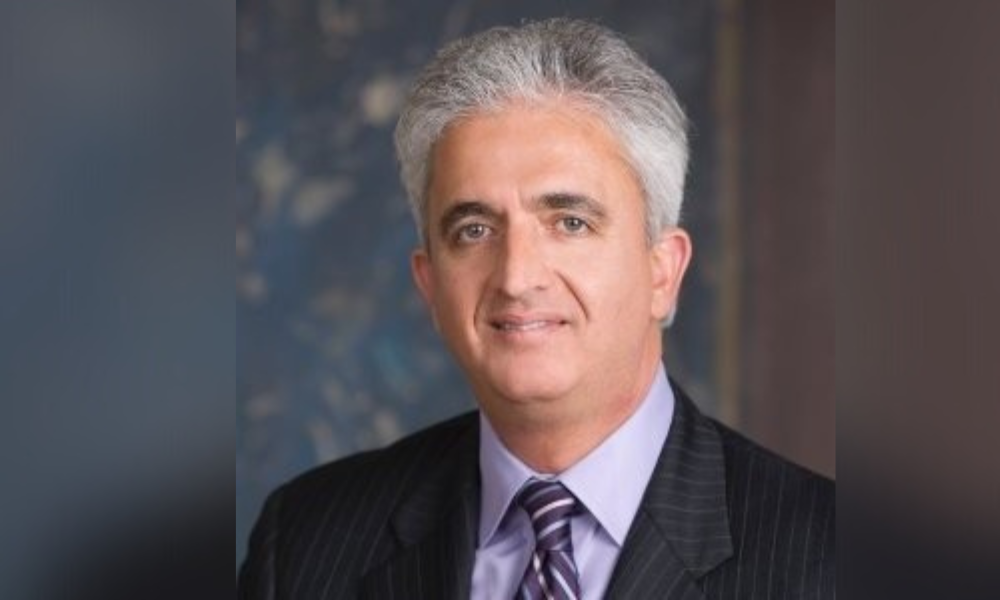
President of USA Express lists the benefits of recruiting beyond millennials and Gen Z

This article was provided by USA Express.
Let me tell you about my recently hired office assistant, Sharon. She’s dependable, she shows up at the office every day, she understands the meaning of work, she takes everything seriously, and she gets the job done. She is a gem.
And she’s 62.
As I restaffed following the Great Resignation of the millennials and Gen Z, I wasn’t necessarily looking for a “senior” employee, but there are plenty of reasons I should have been. The over-50 demographic, largely overlooked by hiring managers for decades, can be the employment answer to businesses and companies willing to trade cool and sexy staff photos for unmatchable expertise and wisdom that comes from years of experience.
Among the many reasons employers are wise to hire the well-seasoned worker are:
They’re happy where they are. Mature employees aren’t trying to climb a corporate ladder, and the years of wanting to “prove themselves” are long past. They’re not going to skip out after a short time because they think the next move will put them farther ahead. And they don’t create workplace tension muscling their way into a promotion. Further, studies have shown that newly hired older workers stay with their employers longer than their younger counterparts.
They don’t need a ping pong table. Gimmicks that lure the younger set to the office leave the mature crowd scratching their heads. Give them the salary they deserve, fair and equal treatment, kindness and respect, and they’ll stay motivated.
They are problem-solvers. Before the internet had all the answers, people -- these people -- had to find them for themselves. Whether that required taking something apart for a diagnosis and repair, making a trip to the library, or phoning an expert, their resourcefulness was born of necessity, and they’ll put that talent to work on the job.
They know how to reason. A steady stream of soundbites over social media has nothing on actual knowledge, critical thinking and common sense, strong and irreplaceable assets the older generation have gained in their decades of experience.
Their soft skills are superior. The “golden group” understands the value of interpersonal communications and puts it to good use. They know there’s nothing like the exercise of picking up a phone or knocking on a door, not to mention listening, making eye contact, writing a well-crafted letter and engaging in face-to-face conversation.
Read more: What are American workers’ top skills in 2022?
They take pride in their work. They’re not just putting in their time; they are getting a job done and doing it right. They understand that their work reflects upon them – positively or negatively – and they possess a sincere and profound desire to exceed expectations.
They are dependable. Research finds that older workers are more punctual and take fewer days off than younger workers. And although they might be in the stage of life where they’re caring for elderly parents, that’s nothing compared to boyfriend/girlfriend drama, wedding-planning on the company computer, new-baby exhaustion and child-raising demands that can consume the minutes and minds of the 20-to-50 set.
They contribute to a diverse and inclusive workforce. We’ve heard these buzzwords many times in the last few years regarding gender and its orientation, race, physical ability, etc., but age has been left off the list. Put it back on. Because no team you put together is complete without the perspective of the person who has been around the longest.
They do learn new tricks. Studies by the U.S. Department of Labor Aging Worker Initiative reveal that over-50 workers possess a very high capacity to learn new processes and technologies, and knowledge gaps can be easily overcome. That ear budded girl whose name you can’t spell might be on top of her Insta game, but that doesn’t mean Bob or Karen can’t master it, too – perhaps with the younger’s instruction. Pair the two on projects to make the most out of the skillset of each.
They are a significant segment of the workforce. Baby Boomers make up 20% of the available talent pool. With 40% of businesses reporting they have spaces to fill, it’s a group that companies can’t afford to overlook.
Now consider the reasons why hiring older workers is good for them. While society pressures workers to give up their livelihoods around age 65 to dote on the grandkids, hit the golf course and travel the world, research shows that retirees suffer from high rates of depression, heart attacks and a general sadness over losing their purpose in life.
You probably already know seniors who are good candidates for your open positions. But here are some tips for finding more:
Older workers have been there, and they’ve done that. And when it comes to filling your next open positions, they might be the best choice out there. I found my gem, and yours is out there, too.
Harry Kazakian is a licensed private investigator and founder and president of USA Express, a provider of a wide range of litigation-support services.